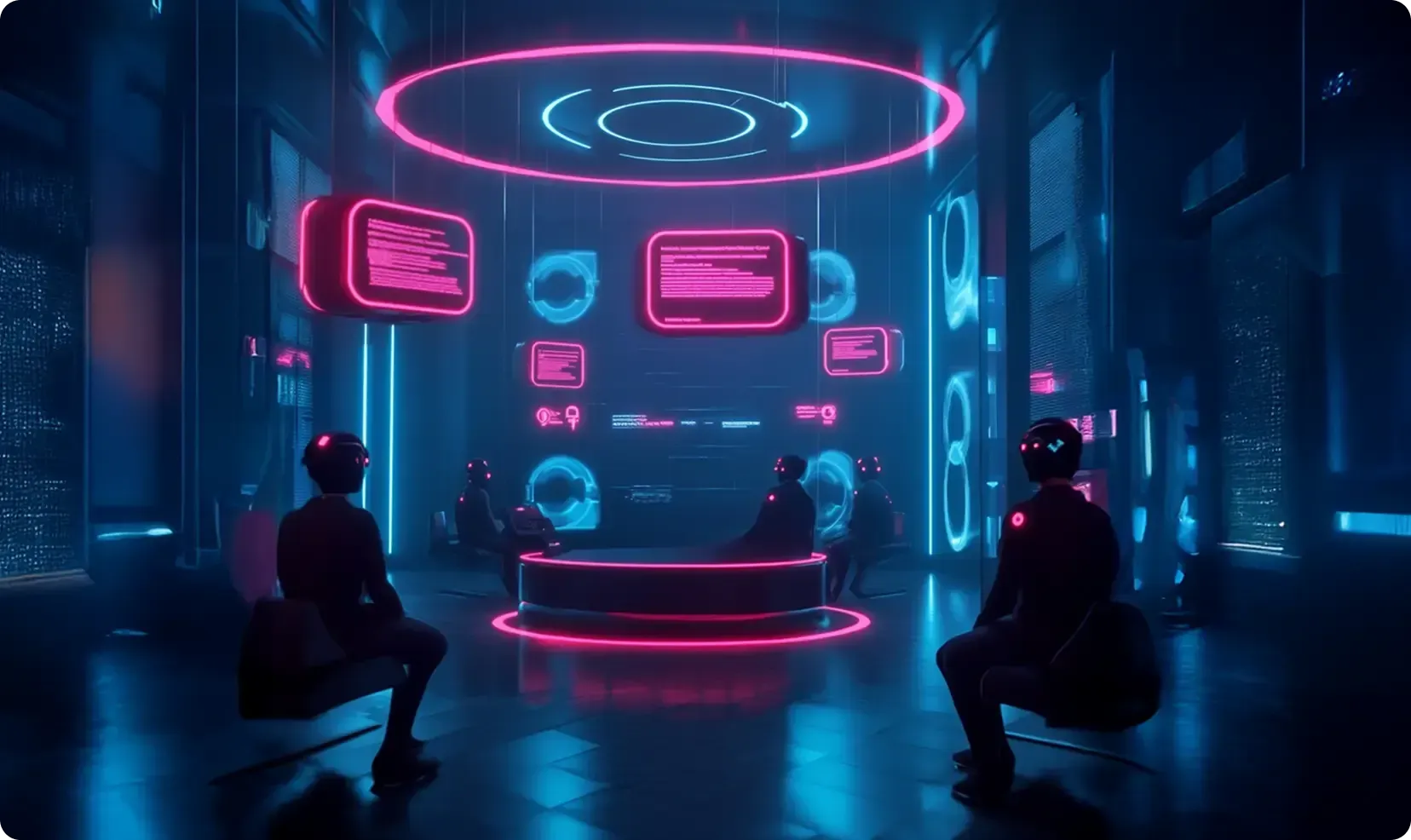Case Study: Enhancing Jitsi Meet with Lobby Chat and Challenge-Response System
1. Introduction
In the fast-paced world of online meetings, especially for large organizations and secure environments, the ability to moderate and control access to virtual rooms is essential. At ConsensusLabs, we were approached by the Document Foundation, who requested a crucial feature enhancement for Jitsi Meet, one of the leading open-source video conferencing platforms. Funded by the Document Foundation, the project aimed to introduce a lobby chat and challenge-response messaging system, enhancing moderator capabilities and ensuring only verified participants could join locked-down rooms.
2. The Challenges
Jitsi Meet had already established a lobby feature, allowing participants to wait for approval before entering a meeting. However, the existing functionality lacked sufficient tools for moderators to interact with those waiting to join. This posed a challenge for meetings where strict access control was necessary, such as corporate boardrooms or secure government sessions. Moderators needed an effective way to communicate with participants in the lobby and verify their identity before granting access.
Without this capability, there was a risk of uninvited or unverified participants entering restricted rooms, potentially compromising the security and flow of the meeting.
3. The Solution
To address these concerns, the Document Foundation funded a project that ConsensusLabs developed in close collaboration with their team. The solution involved creating a challenge-response messaging system integrated with the lobby. The new feature allowed moderators to initiate a chat with participants waiting to join, asking verification questions before granting access. This chat system enabled a more secure and user-friendly experience for both moderators and participants.
Additionally, the technical solution involved two key merge requests that were integrated into the Jitsi Meet codebase:
lib-jitsi-meet Pull Request #1811: This introduced the challenge-response system, providing the functionality for moderators to send messages to participants waiting in the lobby and receive responses.
Jitsi Meet Pull Request #10847: This pull request implemented the lobby chat feature, enabling real-time communication between the moderator and the participants waiting to enter the room.
Both enhancements contributed to a more seamless and controlled meeting experience by allowing moderators to communicate and verify participants directly within the platform.
4. Technical Highlights
The technical approach for integrating the challenge-response system and lobby chat involved several key innovations:
Challenge-Response Messaging: Moderators could send customized messages to participants, posing security questions or asking for identification. The system would ensure that participants could only enter after providing the correct responses.
Lobby Chat Functionality: This feature allowed for seamless communication between moderators and participants, ensuring clear and immediate messaging without needing third-party chat tools or external verification methods.
Improved Access Control: By empowering moderators with these new features, Jitsi Meet became a more secure platform for restricted environments, allowing for more effective moderation during critical meetings.
5. Impact & Achievements
The implementation of these features made Jitsi Meet more adaptable to a variety of use cases, including corporate board meetings, government sessions, and virtual conferences where high security and careful participant control are vital. The challenge-response system and lobby chat were particularly useful for:
- Government and legal sectors: Ensuring only authorized individuals join sensitive meetings.
- Corporate environments: Adding an extra layer of security for internal discussions.
- Educational use: Controlling access to virtual classrooms or private group sessions.
By contributing to the open-source Jitsi Meet project, ConsensusLabs helped enhance the platform’s capabilities, enabling it to meet the growing needs of modern, secure communication. This was made possible with the support and funding from the Document Foundation.
6. Why This Matters for the Future
The features developed in this project are just a part of the broader movement toward more secure and user-controlled virtual environments. As remote work and online meetings continue to grow in popularity, platforms like Jitsi Meet need to adapt to meet the security demands of diverse industries. This case study demonstrates the importance of open-source contributions in driving continuous innovation for the future of video conferencing.
By improving moderation and access control tools, this project lays the groundwork for future enhancements, offering even greater security, flexibility, and user satisfaction in online meetings.
7. Conclusion
The successful integration of the lobby chat and challenge-response system into Jitsi Meet marks a significant milestone for ConsensusLabs in enhancing virtual meeting security. This case study highlights our commitment to improving open-source projects and creating tools that help organizations and individuals communicate more securely and effectively.
With the ever-evolving needs of virtual collaboration, we continue to focus on creating solutions that enhance user experiences while ensuring that security and privacy remain top priorities. Special thanks to the Document Foundation for funding and supporting this crucial enhancement to Jitsi Meet.

